source: PETA
Why does PETA work so hard to take down dog breeders and puppy mills? Simple—breeding animals is killing them. Every time a breeder brings another puppy into the world, a dog sitting in a shelter loses a chance at finding a loving home.
What’s a dog breeder?
Anyone who uses dogs’ reproduction to make a profit is a breeder. Some may be small-time “backyard” operations, while others could be filthy industrial-sized puppy mills. Regardless of size, every breeder is responsible for exacerbating the overpopulation crisis.
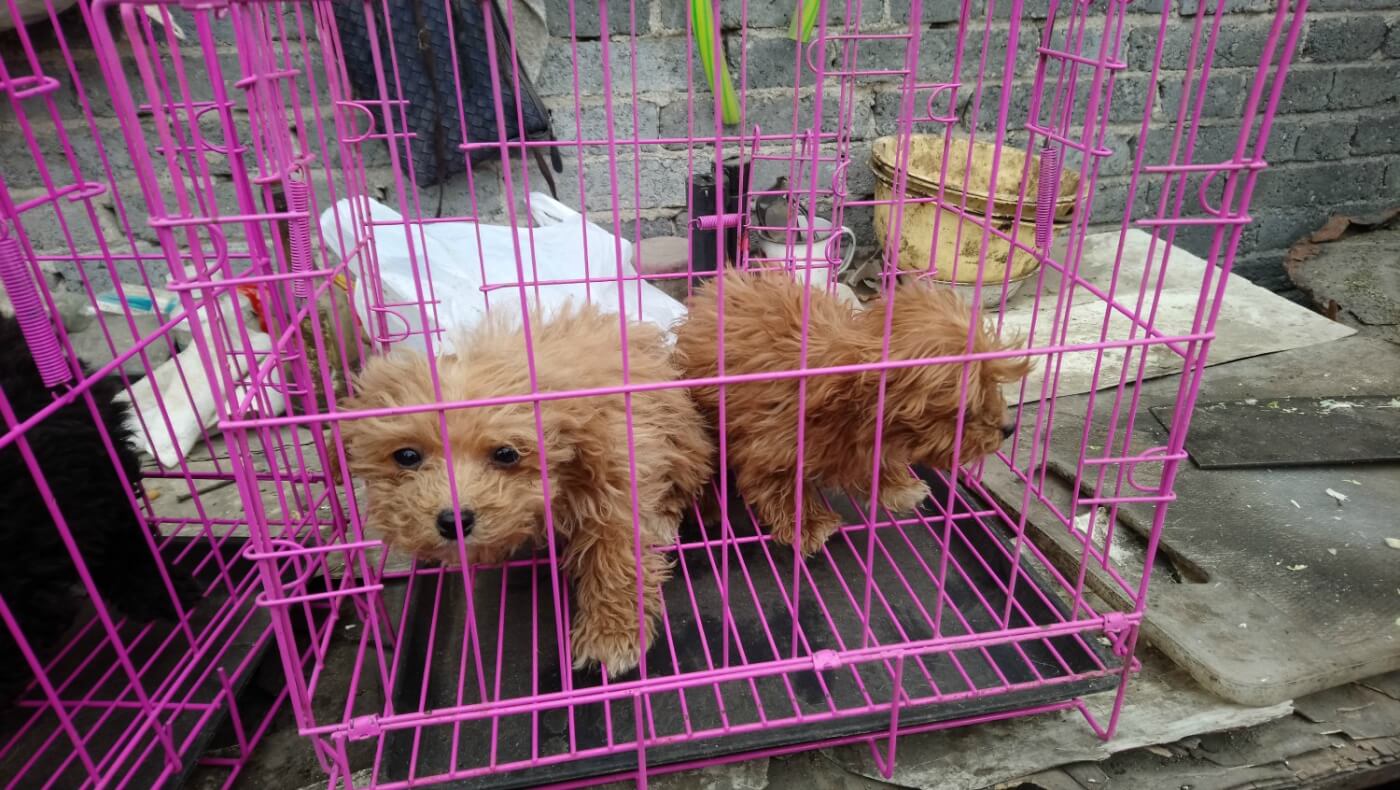
In a time of extreme companion animal overpopulation, breeding dogs is always irresponsible and cruel. Dog breeders treat living individuals as commodities to be genetically manipulated for profit. In this industry, many dogs are kept in crates and cages, where they live alone, never experiencing the affection of a loving family.
How are dog breeders worsening the overpopulation crisis?
There’s no excuse for bringing more puppies into the world. More than 6 million animals end up homeless every year, and half of them must be euthanized because there simply aren’t enough proper homes for them. Every time a dog is bred, more dogs lose the opportunity to have a good life.
Few breeders require the puppies they sell to be spayed or neutered, so they can soon have litters of their own, further exacerbating the overpopulation crisis. Just one unaltered female dog and her offspring can produce 67,000 puppies in only six years.
Breeders don’t see dogs as individuals with personalities and specific needs—they just see dollar signs. When fleeting trends arise around particular breeds, such as the craze for huskies fueled by HBO’s Game of Thrones, dog breeders pump out dogs just to satisfy humans’ most recent whim. The pet trade encourages the public to view animals as impulse purchases, no different from fashion accessories or home decor, rather than as thinking, feeling beings who deserve love, respect, and a lifetime commitment.
Many other unwanted animals—who are abandoned but never make it into a shelter—suffer and die after being hit by cars or attacked by other animals, succumbing to disease or the elements, or enduring other awful fates.
Are dog breeders always bad news?
When millions of dogs must die every year because no one will adopt them, breeding a dog even once is unethical. Instead, guardians should be having their animal companions spayed or neutered.
The dog-breeding industry includes puppy mills—hellish mass-breeding facilities in which dogs are treated like puppy-producing machines and never given any love or attention or even the opportunity to stretch their legs.
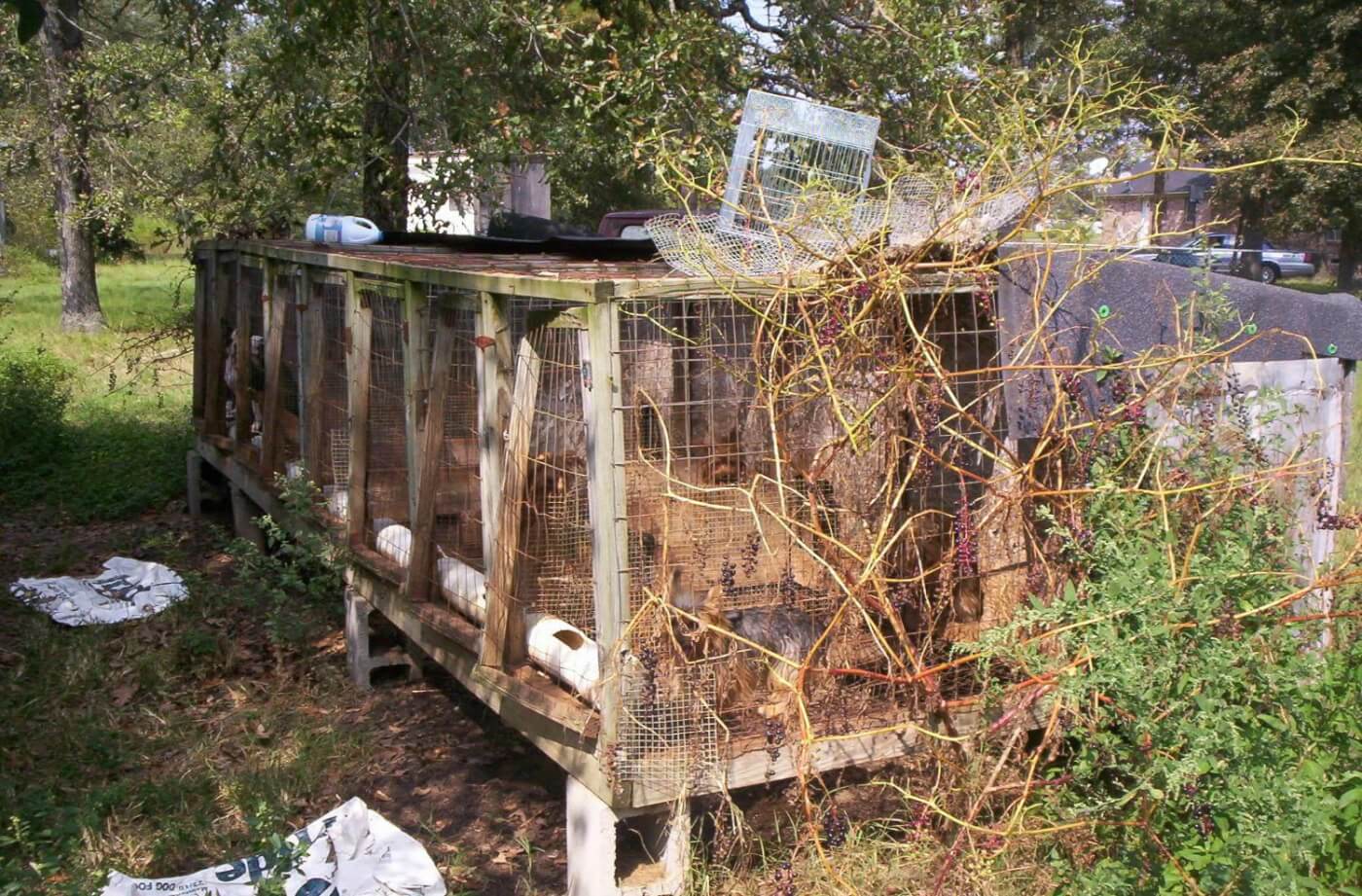
In numerous investigations, PETA has exposed puppy-mill breeders who keep dogs confined to filthy cages that are barely any larger than their own bodies, causing them extreme suffering and distress. Kept in cramped wooden hutches with wire flooring or chained to trees with little to no shelter from the elements, they suffer from illnesses and injuries. Dogs coming from these horrific compounds are often denied proper veterinary care and socialization. Imagine being forced to live amid your own waste, with pus-filled wounds, agonizing ear infections, and deadly parasites. This is the reality of life in a puppy mill.
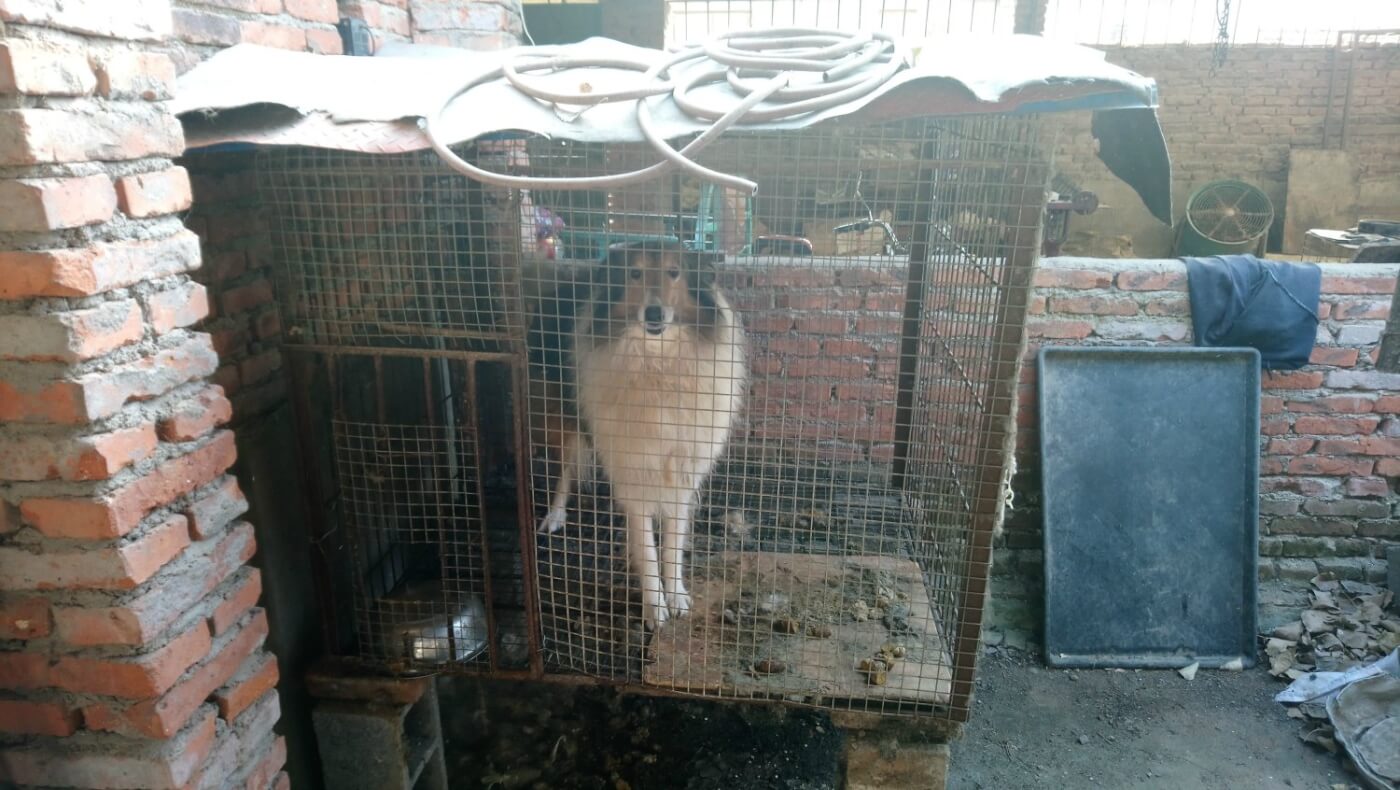
Puppy-mill breeders force dogs to reproduce repeatedly until their bodies wear out from the strain of being continually pregnant in such impoverished, harsh conditions. At that point, female dogs are worthless to a breeder and are often taken to a shelter, auctioned off, or even killed.
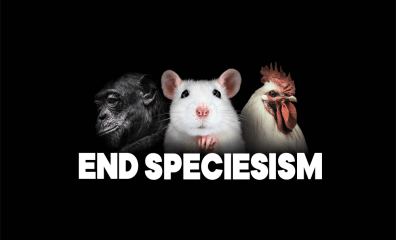
Bigotry begins when categories such as race, age, gender, disability, sexual orientation, or species are used to justify discrimination.
Do puppy mills and breeders really sell sick dogs?
Genetic defects are rampant in any breeding scenario. These can include physical problems that require costly veterinary treatment as well as personality disorders that often frustrate people who buy them, leading them to abandon their dogs.
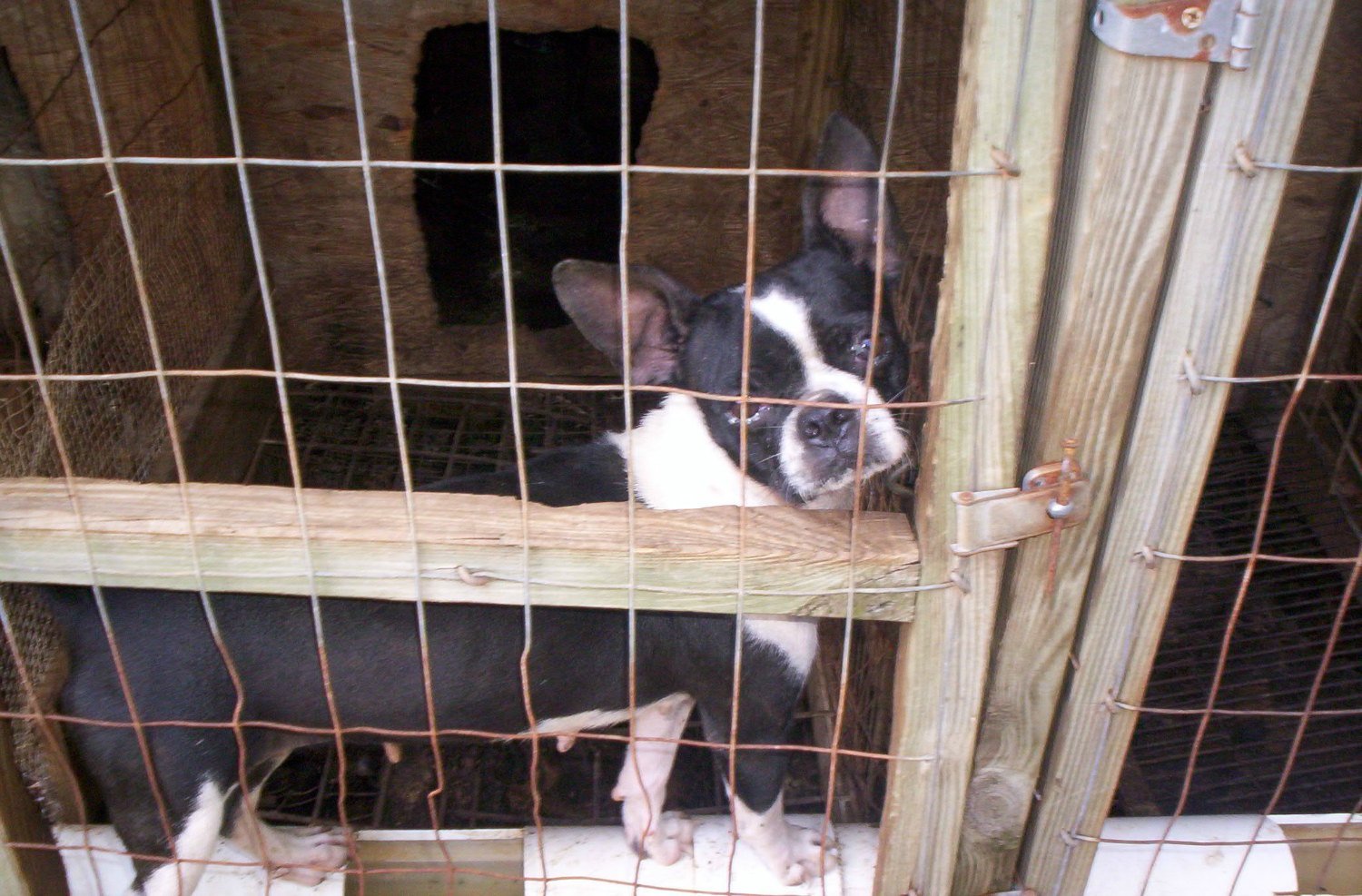
Reckless breeding and the infatuation with “pure” bloodlines lead to inbreeding. This causes painful and life-threatening disabilities in “purebred” dogs, including crippling hip dysplasia, blindness, deafness, heart defects, skin problems, and epilepsy. Dogs don’t care whether their physical appearance conforms to a judge’s standards, but they are the ones who suffer the consequences of genetic manipulation.
What’s the difference between buying a dog from a breeder and adopting from a shelter?
Any socially conscious animal shelter will ensure that dogs have all recommended vaccinations, are spayed or neutered, and have been socialized well enough to become part of a loving family. They screen families thoroughly and require an adoption fee to ensure that the potential adopter is ready for a lifetime commitment.
What if I want a specific breed?
If you’re determined to have a dog of a specific breed, there are many waiting to be adopted—one in four dogs in shelters is a “purebred.” Additionally, there are rescue groups looking for homes for dogs of just about every breed. Petfinder.com is a great resource. If everyone were to stop buying puppies from pet stores, there would be no market for mass-produced puppies, puppy mills would go out of business, and a lot fewer dogs would suffer.
Why are backyard breeders bad?
An amateur dog breeder is just as unethical as any puppy mill but on a smaller scale. Using an individual’s reproductive ability to make a quick buck isn’t just creepy, it also adds to the overpopulation crisis, just as puppy mills do.
And just like puppy mills, amateur breeders can breed dogs with health problems, passing along genes that cause suffering in litter after litter. These types of breeders may also cut costs by failing to provide proper veterinary care. Everything from parasites to bone defects to the deadly parvovirus could very well be overlooked by backyard breeders.
Is breeding your own dog a bad idea, too?
It’s irresponsible to bring more dogs into the world when millions are killed every day because no one wants them. Animal companions can live longer, healthier lives by being spayed or neutered.
Guardians may feel that their animal companion should experience motherhood, but having babies is by no means vital to living a fulfilling life. And while the intentions of adopters may be good, there’s no way of knowing what will happen to the puppies once they’ve been adopted.
Does breeding shorten a dog’s life?
Pregnancy and birth in any species comes with inherent risks to the mother and the fetus. Spaying eliminates the stress and discomfort that females endure during heat periods, eliminates the risk of uterine cancer, and greatly reduces the risk of mammary cancer. Neutering makes males far less likely to roam and fight, prevents testicular cancer, and reduces the risk of prostate cancer.
How many litters can a dog legally be bred to have?
There have been some efforts to limit the number of litters a breeder can register with larger institutions such as the American Kennel Club. But currently, there are no laws that regulate the extent to which a breeder can breed an animal for profit.
PETA supports legislative measures that mandate spaying and neutering.
Is PETA against owning pets?
Domestic animals are incapable of surviving on their own, so it’s our responsibility to take the best possible care of them. PETA fully supports sharing our lives and homes with animal companions who are loved, treated well, and given proper care.
How can I help take down dog breeders and puppy mills?
Never buy animals from puppy mills, breeders, or pet stores. If you have the time, money, and patience to care for a companion animal properly and for a lifetime, adopt from a shelter. Consider adopting two, so that they can keep each other company when you’re not home. And be sure to make a spay or neuter appointment right away.
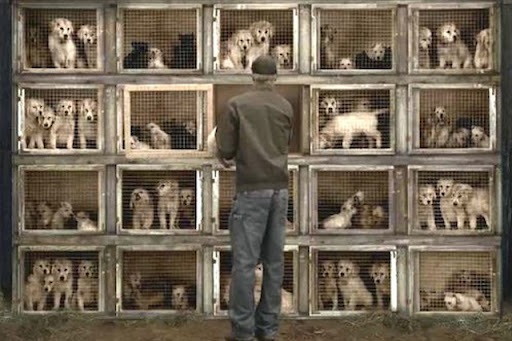
Leave a Reply